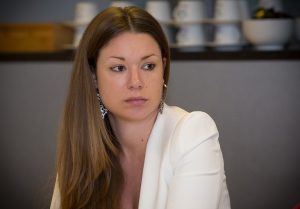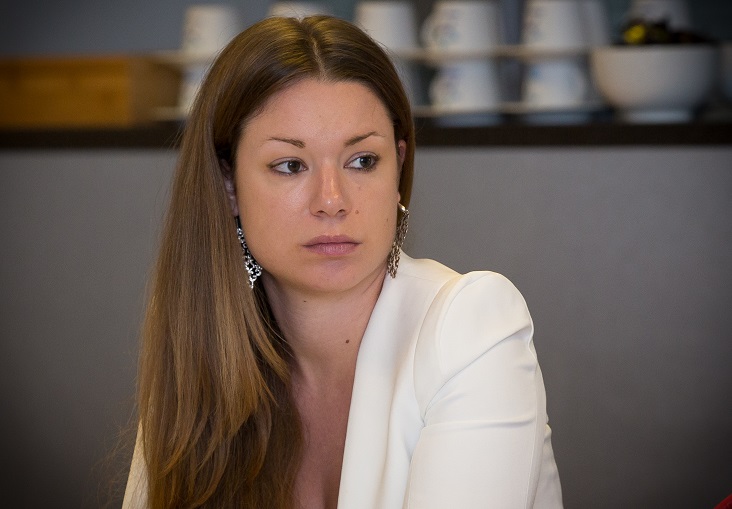by Sara Brzuszkiewicz
 In September 2018, the first branch of al-Azhar outside Egypt will open in El-Ain. This is an unprecedented move that is likely to generate a number of positive consequences in the joint fight against radicalization.
In September 2018, the first branch of al-Azhar outside Egypt will open in El-Ain. This is an unprecedented move that is likely to generate a number of positive consequences in the joint fight against radicalization.
Furthermore, it fosters the ongoing commitment to create a closer cooperation between the Gulf and a major center of non-radical Islam.
In a few months, the United Arab Emirates will have the first branch of Egypt’s al-Azhar University. The agreement was signed two years ago by Grand Imam of al-Azhar, Dr. Ahmad al-Tayyeb, and Dr. Mohammad Mattar al-Kaabi, Chairman of the General Authority of Islamic Affairs and Endowments (GAIAE) of the UAE.
The choice made by the Emirates follows another significant step in the cooperation in the field of higher education made by King Salman last year.
In 2016, Saudi Arabia laid the foundation stone of the Beouth Islamic City in Egypt, which includes a dormitory for up to 30,000 students, at the al-Azhar University in Cairo, after KSA had also given funds to Egypt for the restoration work at the mosque and university. Interestingly, during the same visit to Egypt, King Salman met Pope Tawadros, and the symbolic relevance of this interfaith encounter is clear. Indeed, as Abdallah Hamidaddin stated after the meeting, it promised to represent the starting point of a renewed effort to cooperate against radicalism, since it is in the fractures within the Islamic world that radicalization flourishes. In a similar vein, many commentators highlighted that the King’s visit was not simply a routine protocol event, but a choice with a fundamental symbolism for the promotion of tolerance and mutual respect. Moreover, as Mohammed el-Haddad noted, the visit implied recognition of the fact that promoting these values falls primarily within the duties of the governments of the region before those of civil societies.
Another fundamental consequence of an increased effort in improving the quality of al-Azhar students’ daily life is that, by so doing, states are more able to snatch this leverage from the hands of radical Islamists, and this is something that can be easily learned from the recent past.
Indeed, during the seventies and eighties, in Egyptian university campuses, dormitories, and mosques, radicalized students succeeded in creating so-called Islamized spaces, in which local groups enforced their version of religious values over the other students. Since the conditions of the Egyptian educational system and infrastructure were challenging and burdensome and the number of students rose from less than two hundred thousand in 1970 to more than half a million in 1977, the radicalized groups easily subverted the discourse by exploiting the state’s failure to provide basic services —creating swift solutions to fill the gaps left by the national institutions. For example, Islamist student associations started to create their own bus services for students, give free private lessons, and print cheap copies of books for exams. Inevitably, their tangible actions and narrative started to appeal to a large number of students, thus making university campuses an ideal breeding ground for radicalization.
Improving students’ living conditions may be a first step toward reversing this trend, and enhancing the relationship with al-Azhar seems to be the best starting point for the implementation of more effective approaches. Finally, this move might represent an effective inducement for encouraging the Sunni Egyptian institution to undertake a gradual process of change and renovation.
Indeed, being more exposed in the region and in the Gulf might lead al-Azhar to reconsider a number of unresolved issues. First of all, the internal fragmentation: in such a big institution, it is normal to have scholars with different opinions. However, while al-Azhar is thought to be a center of moderate Islam, some of its members are in favor of female genital mutilation, some are sympathetic with the Brotherhood, and also a number of them opposed the 2015 government’s decision to begin to standardize Friday sermons, a move designed to undercut radicalization.
Undoubtedly, it is premature to evaluate the real impact of the next move — the opening of an al-Azhar branch in the UAE. Nonetheless, this step is likely to continue on the same path as the visit of the Saudi king in Egypt, pursuing the twofold goals of fostering tolerance and mutual respect within Islam and towards other religions, and creating a further barrier against radicalism through higher education.
Sara Brzuszkiewicz is a researcher at Al-Mesbar Center for Research and Studies.










